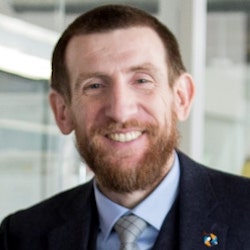Home » Education hub » On Our Way to Patient-Enabled Solutions
On Our Way to Patient-Enabled Solutions
On Our Way to Patient-Enabled Solutions
The healthcare industry has seen its share of unicorns and minicorns — many of which are “tech-enabled” and “AI-enabled.” I am a big proponent of using tech and AI to reap efficiencies, provide a better user experience, and filter faster through mounds of data in the hopes of improving patient outcomes. Like many of our competitors, we do that. But I realized last year, as we claimed our place in the healthcare consulting/CRO space, that future success depends on our ability to become wholly “patient-enabled.” Being patient-enabled means that we need to further layer our organizational stack, and I believe that the returns, for our clients, their patients, and our company will demonstrate the boundless potential of this patient-centric approach to healthcare services.
Since its inception, Alira Health has been advancing, both instinctively and consciously, toward patient-enabled services — a concept, a value, and a modality that requires personal touchpoints with patients, caregivers, and providers that elevate and transform the impact of life sciences by incorporating the voice of the patient in all its forms to better inform the development and commercialization of healthcare products and services.
Patient-enablement requires not just tech or tech-enabled innovations, but human intervention/interaction as well. Drug and device companies should not depend solely on clinical technologies to recruit and retain patients for trials and post-trial assessments — novel interfaces, ease-of-use, and gamification cannot be trusted to recruit and retain a diverse cohort of suitable patients, no matter what the salesperson says. The key to a successful trial requires a personalized approach. Employing trained personnel who interact with patients and their trusted advisors alongside the technologies has a higher probability of ensuring that the patient pool is right the first time and that patients stay with the program. Yes, this is labor-intensive, but I firmly believe that patient-enabled solutions are ultimately much more effective, from both patient and cost perspectives. Similarly, millions are spent on patient registry technologies to inform patients, build community, and generate data. However, registries do not thrive without people who understand the needs of patients and help them derive value from active participation in the registry.
These are but two examples of the myriad opportunities we have as consultants, technologists, and CROs to go beyond tech-enablement to patient-enablement. The seeds for Alira Health’s growth in this direction were planted years ago, when it became clear that to retain talented staff, we had to make a direct link from what we do every day to improved patient care. Working long hours is typical in consulting, but we all wanted more for ourselves — and being consultants, we need evidence. Examples of activities that we launched in 2022-2023 and will incorporate into workflow in 2024 include:
- Allowing our employees to have a real experience in hospitals and outpatient facilities so they can see where the friction lies in providing patient care;
- Employing a Chief Patient Officer to bring a patient-centric approach to product development and care to our clients and our team;
- Conducting patient workshops before tackling clinical and RWE projects on a disease or condition to inspire deeper understanding and empathy for patients in our methodologies and deliverables;
- Implementing certifications for internal and external use to embed a patient-first mentality in any healthcare endeavor;
- Investing in patient-focused technologies that generate real world data; and building new patient technologies, not as stand-alone products, but paired with our services to ensure the best outcomes;
- Seeking out projects in which patient engagement is key to advancing research, for example, rare diseases, pediatric indications, and precision oncology so that we can integrate that learning in other areas;
- Operating a crowd-funding platform to help peer-reviewed, promising products and services reach patients.
There are many things one can do to bring patients’ perspectives to technologies and services, and we continue to discover more each day. But are these activities having a positive impact? Our ever-growing list of clients is positive. But are we helping patients? To answer this question in a concrete way, we are developing a patient impact index (PiiX™) to measure our ability to have a positive effect on people’s lives. When it’s complete, we are excited to make this tool widely available so that any company can measure their success.
For me, the natural evolution of healthcare in many of its forms is patient-enabled healthcare. And yes, there is always an extra cost in the early stages of any new approach until the additional work becomes more efficient, scalable. All our stakeholders — employees, investors, and others — know that patient-enablement will be the new standard for healthcare services and technologies. We placed our bets early and are already seeing results — it’s why we changed our tagline to “where empathy meets science.” I look forward to seeing this thinking propagated throughout the healthcare ecosystem so that everyone, primarily the patients themselves, can benefit from incorporating patient perspectives throughout the lifecycle of a life-changing product or service.
Learn more about the author, Gabriele Brambilla.

By Gabriele Brambilla, CEO of Alira Health.
For me, the natural evolution of healthcare in many of its forms is patient-enabled healthcare. All our stakeholders — employees, investors, and others — know that patient-enablement will be the new standard for healthcare services and technologies.”
Gabriele Brambilla

By Gabriele Brambilla, CEO of Alira Health.
Subscribe to our newsletter for the latest news, events, and thought leadership
